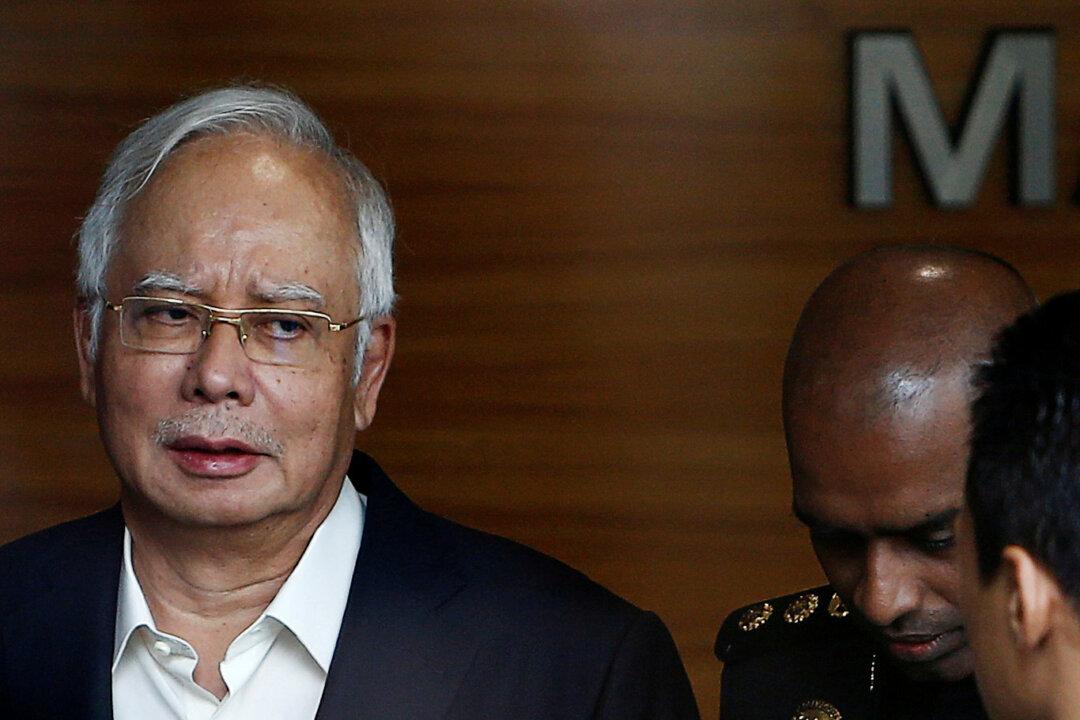KUALA LUMPUR—Malaysia’s former leader Najib Razak approved a plan to bail out troubled state fund 1MDB by offering stakes in several big infrastructure projects to Chinese firms in 2016, a former aide told a court on Sept. 4.
Najib, who was voted out of power last year amid public anger over alleged graft at 1Malaysia Development Berhad (1MDB), is on trial for allegedly receiving hundreds of millions of dollars from the state fund he set up in 2009.





